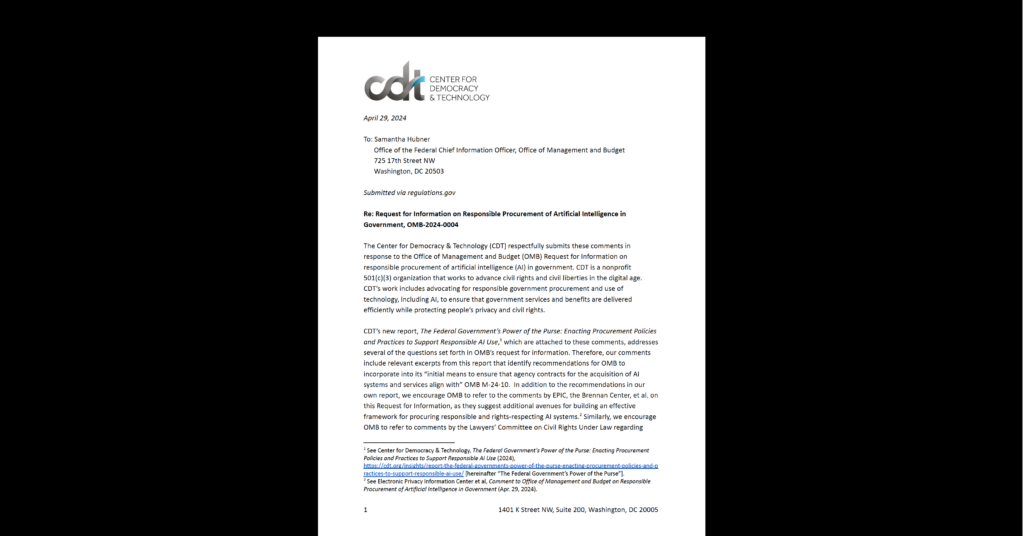Inviting FCC Mission Creep?
CDT is sending a letter to the Department of Justice today objecting to precisely three words — indeed, the last three words — of DoJ's press release earlier this month announcing its Task Force of Intellectual Property Enforcement. Those words are "Federal Communications Commission." Specifically, the end of the press release names the FCC as an agency that DoJ intends to work with in combatting I.P. crime.
What's wrong with that? It's an invitation to major mission creep. The FCC's job is to execute and enforce federal communications law. It has no authority and no role in enforcing other laws. Lots of unlawful activity — from intellectual property infringement to racketeering to securities fraud to deceptive advertising — may occur over or using communications networks. But that doesn't make it the FCC's job to police such activity. The FCC's focus is, and should remain, promoting the availability of high quality communications capabilities in the United States — not policing what users do with those capabilities.
In addition, the only reason to involve the FCC would be to force the entities the FCC regulates — communications providers, and in particular ISPs — to start actively policing I.P. infringement. Having government force ISPs to take on this new role should raise serious red flags. The idea that ISPs don't serve as gatekeepers or content censors, and aren't themselves responsible for what users do on the network, has been a bedrock principle that underpins the Internet's open and innovative nature. Casting it aside would be a serious mistake and a radical departure from U.S. communications policy.
Of course, the DoJ's Task Force is far from the only forum where the idea of saddling ISPs with I.P. enforcement duties could come up. Internationally, the French and British governments have embraced so-called "three strikes" policies and it appears to be a live topic in the Anti-Counterfeiting Trade Agreement (ACTA) negotiations as well, based on recent leaks. Just this week, the European Data Protection Supervisor expressed serious concern about ACTA's potential impact in this regard. Here in the United States, there have been rumors for well over a year now about discussions between ISPs and copyright holders to cooperate on combatting illegal file sharing. But government hasn't yet stepped in. That's why DoJ's mention of the FCC is troubling. It's also possible that the issue could come up in the "Joint Strategic Plan" being developed by the new Intellectual Property Enforcement Coordinator. Yesterday's Federal Register contained a notice seeking public comment on that plan, and there may well be calls for the plan to enlist the FCC and ISPs. The IPEC, like the DoJ, should resist inviting FCC mission creep.
As a quick footnote, I should add that resisting FCC excursions into general law enforcement activities does not carry any implications for the ongoing debate about the agency's authority to adopt Internet neutrality rules. The FCC may well have authority to regulate the provision of broadband Internet access; after all, the provision of transmission capability by wire or radio is at the core of the agency's statutory mission. How Internet users choose to use (or misuse) such services is an entirely different matter and does not fall within any plausible scope of FCC authority.


